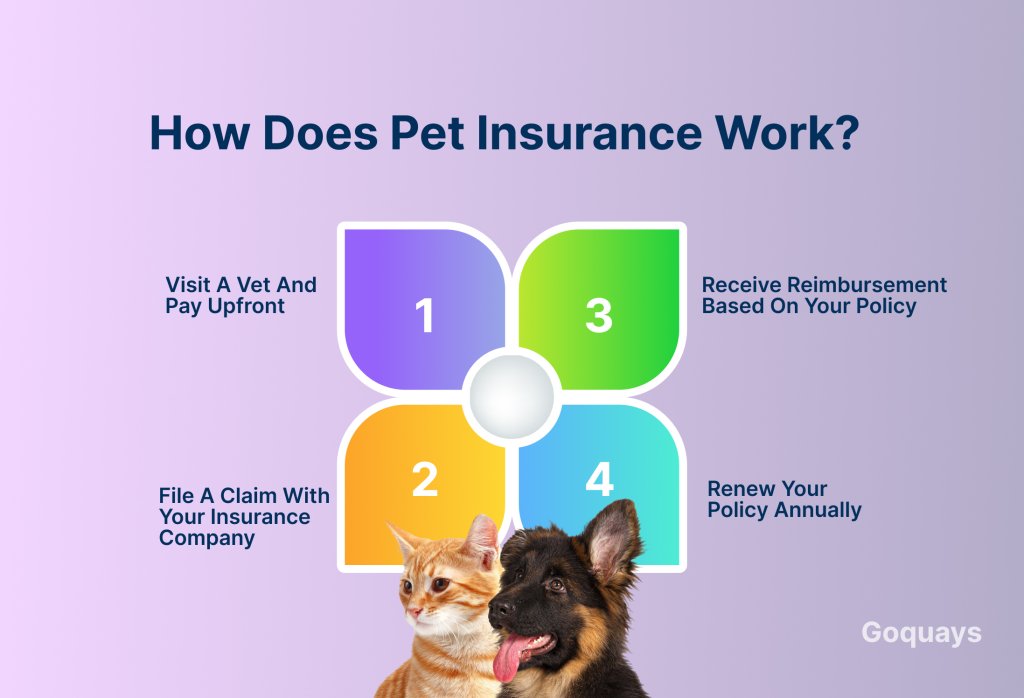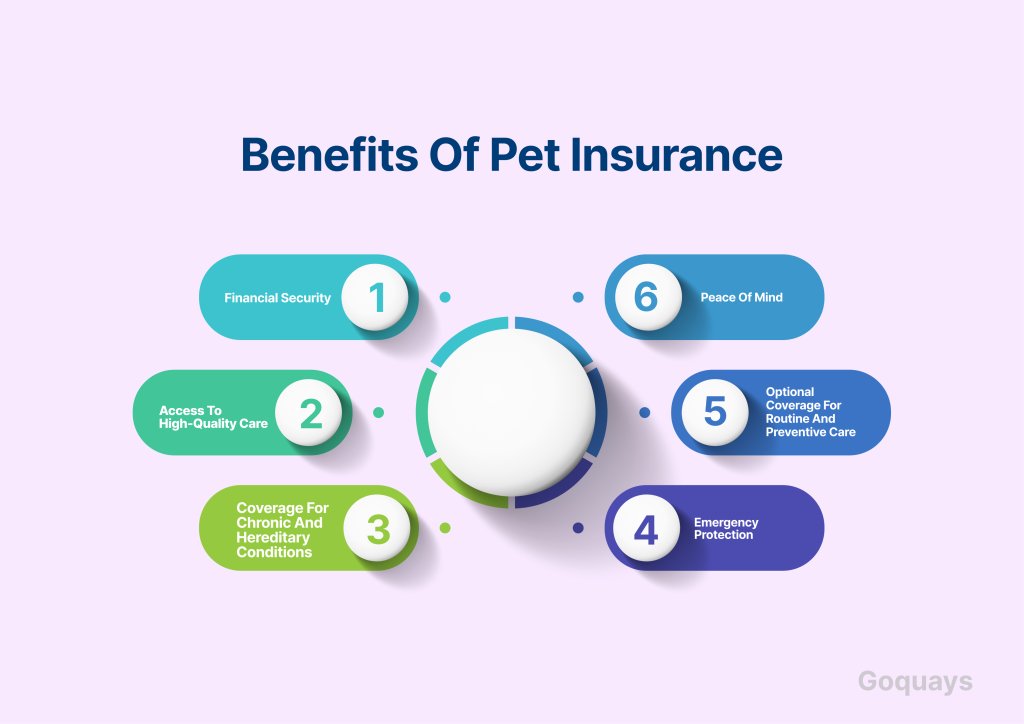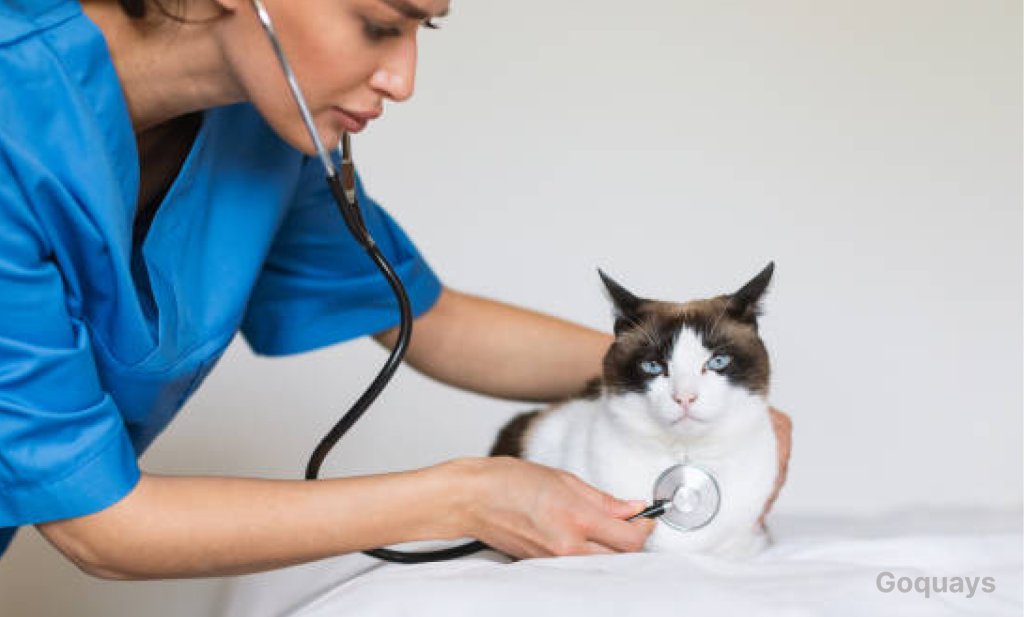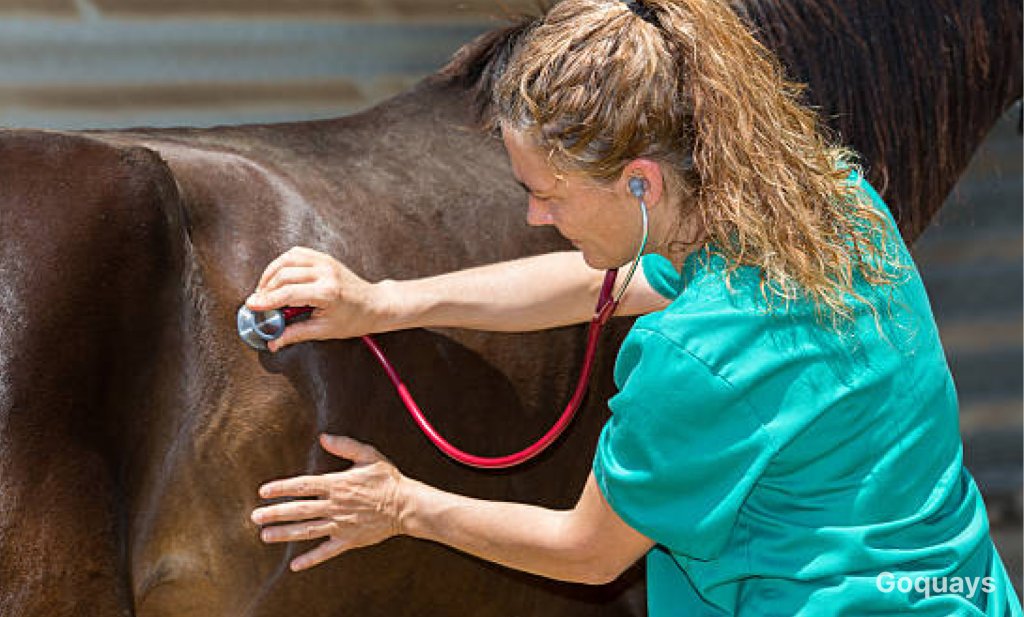As a pet owner you would go to any length to ensure the health and wellbeing of your pet, but what do you do when unforeseen veterinary bills come up? Pet care expenses can pile up very quickly due to unexpected illnesses and even emergency surgeries, forcing many pet owners to make difficult financial decisions. Pet insurance can help cushion some of these unexpected occurrences, it will protect your pet as well as your wallet.
However, you may want to ask, Is pet insurance worth it? Research has shown that one out of every three pets will require an emergency treatment at least once in a year. At Quays we are committed to providing pet owners with the best cost-saving insurance solutions that guarantees peace of mind. We will examine the benefits of pet insurance, the real cost of pet care and the best option for your pet.
Pet insurance is becoming an increasingly popular option among pet owners with the rising cost of vet care. If you own one of these lovely house animals and are wondering if pet insurance is a smart investment or just another monthly expense to add to the already huge monthly bills you have to pay. We are here to break it down for you! Let’s explore how pet insurance really works and if it’s worth all the hype in terms of its cost vs benefits.
How Does Pet Insurance Work?

Pet insurance provides financial security against unforeseen veterinarian costs, just like health insurance for humans does. Pet owners can lessen the financial burden of caring for their animals by paying a monthly or yearly premium, which will guarantee them excellent medical care and access to quality medical procedures. This is a detailed explanation of how pet insurance normally works:
With a variety of plans available, choose the one that really works for you. The needs of your pet and your financial situation will determine the plan you choose when buying pet insurance. The majority of insurance providers offer a range of coverage levels, such as, accident-only plans which cover medical care for injuries, time-limited plans, which cover for accidents and illnesses within a pre-defined period of time, Lifetime coverage which provides continued protection against long-term illnesses, and finally a comprehensive cover which offers protection against a wide range of illnesses, routine care and sometimes dental care depending on your provider.
Visit a Vet and Pay Upfront
In contrast to human health insurance, the majority of pet insurance plans demand that you pay the veterinarian’s cost before anything else. You will have to pay for your pet’s care out of pocket before submitting a claim to your insurance provider for reimbursement.
File a Claim with Your Insurance Company
You will then file a claim with your insurer following treatment, which usually consists of a detailed bill from your vet, a filled-out claims form (which can be accessed online), and any necessary medical record. Depending on the provider and policy, some insurance companies allow direct billing, which means they pay the vet directly.
Receive Reimbursement Based on Your Policy
A percentage of the vet expense will be reimbursed by the insurer when your claim has been examined and accepted. Your policy determines how much you get. Most insurance companies pay between 70% and 90% for eligible expenses. However, note that you are required to pay a pre-determined sum ranging between £50 to £200 annually before the insurance takes effect.
Renew Your Policy Annually
The majority of pet insurance plans need to be renewed annually. Ongoing conditions (such as diabetes or arthritis) will be covered if you choose a lifetime plan, provided that you renew without experiencing any gaps in coverage. However, switching providers may result in exclusions for pre-existing conditions.
Key Considerations When Choosing a Pet Insurance Plan
There are many key factors to consider when choosing a pet insurance plan, some of these include:
Pre-existing Conditions: Most insurance companies do not cover for ailments your pet had prior to the start of your policy.
Breed-Specific Conditions: Certain breeds of animals may or may not be covered by insurance companies, especially if they are prone to genetic disorders.
Waiting Period: Before your policy kicks off, depending on your insurer, there is usually a waiting period of about 14days.
Age Limits: Some insurance companies impose age restrictions for new policies, and insurance is usually cheaper for younger pets.
Is Pet Insurance Right for You?
Understanding how pet insurance works is crucial in determining if it’s worth the investment. No one wishes for accidents or illnesses on their beloved pets, having insurance ensures that you are financially prepared to deal with unexpected vet bills. Choosing the correct policy depends on the health condition of your pet, it’s breed, and your ability to manage emergency costs. Which would you prefer, a predictable monthly premium or the possibility of a high veterinary bill? This is an important question that all pet owners need to consider.
Benefits of Pet Insurance

Pet insurance offers financial protection to pet owners ensuring that your pets can receive the best possible care in the case of an emergency without the burden of unexpected vet bills. Whether you have a cute puppy, furry cat or any other four-legged creature (or two-legged as the case may be), pet insurance can help cover a wide range of medical expenses. Here are some key benefits of pet insurance.
Financial Security
With rising veterinary costs, it has become more important than ever for pet owners to take out insurance for their pets especially with emergency treatments, surgeries and treatment for other chronic conditions running into thousands of pounds. Pet insurance helps cover these costs thereby reducing the financial burden on pet owners. For example, a surgery for a dog with a torn ligament can cost over £2,000, while cancer treatment for a cat can range between £1,500 and £5,000. With pet insurance, you do not have to go bankrupt because you choose to care for your pet.
Access to High-Quality Care
Pet insurance offers you the opportunity to choose the best treatment option for your pet without worrying about the cost. Instead of treating your pet at home because you lack the funds to visit a vet clinic, pet insurance offers you access to the best and most effective veterinary care possible. Some plans even cover referral to a specialist, alternative therapies and rehabilitation services if required.
Coverage for Chronic and Hereditary Conditions
Over time, many pets develop hereditary or chronic diseases such as Hip dysplasia and diabetes in dogs, hyperthyroidism and asthma in cats. According to an article in the journal of BMC veterinary research, about 12-15% of cats and dogs suffer from periodontal disease. Lifetime pet insurance policies guarantee that your pet will continue to receive the best care as long as the policy is continuously maintained.
Emergency Protection
Whether your dog ingests something harmful, your cat sustains injuries in a fight, or your rabbit breaks a limb, accidents can happen at any time. Pet insurance helps cover costs for X-rays, diagnostic tests, surgery, hospital stays, medicines, and follow-up care. Medical emergencies are usually expensive and having accident coverage ensures that you are prepared for any eventualities even if your pet seems healthy.
Optional Coverage for Routine and Preventive Care
Certain comprehensive pet insurance plans provide supplementary coverage for routine and preventive care, such as, vaccinations, yearly examinations, treatments for fleas, ticks, and worms, dental cleanings, and neutering. These extras can help spread out normal pet care costs over time, even if they might raise your premium.
Peace of Mind
The peace of mind that pet insurance offers is among its greatest benefits. You won’t ever have to worry about how you’re going to pay for an emergency surgery or continuous care for a long-term illness. You can concentrate on what truly matters—keeping your pet happy and healthy—instead of worrying about money.
For many pet owners, particularly those who are worried about huge unexpected vet bills, the advantages of pet insurance exceed the costs. Insurance ensures you have quick access to money when you need it most, even though some people might prefer to save money in a special pet fund.
The decision to purchase pet insurance ultimately comes down to your financial status, the health of your pet, and how comfortable you are with any potential risks. Pet insurance, however, is a worthwhile investment for those who desire protection, flexibility, and access to high-quality veterinarian care.

Dog Insurance: What You Need to Know
Dogs are devoted friends and members of the family, not just pets. However, dogs are susceptible to accidents, diseases, and chronic health issues that need medical care, just like humans. Given how rapidly vet expenses can mount up, dog insurance is a wise investment for pet owners. Here’s everything you need to know about insuring your furry friend.
Why Do You Need Dog Insurance?
There are obligations associated with dog ownership, one of which is making sure the animal receives the appropriate medical attention. Vet costs can be expensive, though, particularly if your dog has a chronic disease or requires emergency surgery. You don’t have to pick between your budget and your pet’s health because dog insurance helps pay for these costs. Common conditions covered by dog insurance include:
- Hip dysplasia
- Allergies
- Torn ligaments
- Ear infection
- Accidents and injuries
Some policies also cover behavioural therapy, dental care, and vaccinations depending on your insurance provider. Premiums for dogs are usually higher than for cats due to their higher medical costs.

Types of Dog Insurance Policies
Dog insurance policies differ in terms of coverage and price. The most common types are as follows:
Accident-Only Insurance: This type of dog insurance covers injuries like broken bones or poisoning that arise from accidents. Although it is the least expensive choice, illnesses are not covered.
Time-Limited Insurance: This type of dog insurance covers sickness and accidents for a predetermined amount of time, usually 12 months. The condition is no longer covered after this time.
Maximum benefit Insurance: Offers a certain sum of money for each condition. Any further expenses must be paid for when the limit is reached.
Life Insurance: As long as you renew this policy annually, this is the most comprehensive plan for your pet, covering illnesses and accidents for the whole of your dog’s life. For breeds who are prone to chronic problems, this is perfect.
What Does Dog Insurance Cover?
Dog insurance covers a lot of situations and illnesses depending on the plan you choose and the terms of your policy. Most dog insurance plans include:
- Accidents and injuries, including poisoning and broken bones
- Illnesses including but not limited to skin disorders, digestive problems, and infections
- Chronic conditions such as diabetes, heart disease and arthritis.
- Surgery and hospital stays, this includes both elective and emergency procedures.
- Treatment and medication including prescription medicines, cancer treatments and rehabilitative therapies.
- Diagnostics procedures such as MRIs, X-rays and blood work
- Dog third-party liability that covers legal costs in the event that your dog injures someone or damages their property.
What Dog Insurance Doesn’t Cover
These exclusions are not exhaustive but they vary depending on your provider, some insurers offer them as add-ons or ask you to pay a little extra to include them in your policy.
- Pre-existing conditions: illnesses diagnosed before obtaining the insurance.
- Routine care: vaccinations, flea/tick treatments, and check-ups (unless included in a wellness plan)
- Elective surgical procedures: Cosmetic surgery, ear cropping, and tail docking.
- Pregnancy and breeding costs
- Behavioural problems (unless otherwise specified in the policy)
There are several factors that affect the cost of dog insurance, factors such as breed, age, location, and coverage level. On the average, dog insurance can cost anywhere between £5 and £60 per month depending on your coverage plan. It is important to note that for breeds that are prone to health issues, the premiums will be higher. For example, bulldogs and German Shepherds.
Tips for Choosing the Best Dog Insurance
Begin Early: purchasing insurance for your dog while they’re young will guarantee that they are excluded from pre-existing conditions.
Compare Policies: before selecting the best dog insurance suitable for you, compare policies from different providers, examine coverage limits, reimbursement rates, and exclusions.
Check Excess Fees: excess fee is the amount you pay before the insurance company covers your costs. Lower premiums are typically the result of higher excess fees.
Consider Multi Pet Discounts: if you own multiple pets, you will be able to save money on their insurance by placing them under one coverage plan.
Look for Direct Billing Options: some insurance providers pay directly to the vet, reducing upfront costs.
Dog insurance is a smart investment if you want to guarantee your dog receives the best medical care possible without having to worry about high vet fees. It offers peace of mind that your pet will always get the best care possible, financial stability, and coverage for unforeseen crises.
Cat Insurance: Is It Worth It?

Despite their independence, cats still need to receive proper medical attention throughout their lives. Accidents and diseases can strike without warning, regardless of whether your feline pet is a laid-back domestic companion or an adventurous outdoor explorer. Having cat insurance guarantees that you can get the best care for your pet without worrying about money because vet fees might be high. But is it really worth it to get cat insurance? Let’s break it down.
Why Do You Need Cat Insurance?
Many cat owners like to assume that insurance is unnecessary because cats are generally healthy and require little care. Even the healthiest cats, however, can experience accidents, chronic illnesses, or unexpected medical crises. By helping to cover these unforeseen expenses, cat insurance keeps you from having to make tough choices based on your financial status.
Here are some common health issues that cats suffer from:
- Accidents and injuries
- Diabetes
- Kidney disease
- Urinary tract infections
- Cancer treatments
Types of Cat Insurance Policies
The types of cat insurance policies available are similar to dog insurance policies offered by providers. These include; accident-only insurance, time-limited insurance, maximum benefit insurance, and lifetime insurance.
Cat insurance typically covers:
- Emergency vet visits for accidents, poisoning, and injuries
- Illnesses such as infections. Kidney disease, and respiratory conditions
- Chronic conditions like diabetes, arthritis, and hyperthyroidism
- Surgical procedures- tumor removal and treatment of wounds
- Treatment and medicines including prescription drugs, cancer treatment, and alternative therapies.
- Diagnostic tests
- Hospital stays and specialist care
Some pet insurance providers offer premiums that may include:
- Routine care and vaccinations
- Dental care including cleaning and extractions
- Recovery costs for lost pets.
What Isn’t Covered by Cat Insurance?
Not every illness or treatment is covered by your insurance policy. Some providers exclude vaccinations, flea and worm treatment, grooming, elective procedures like claw removal and cosmetic surgeries, pregnancy and breeding expenses. Others include pre-existing conditions not identified before purchasing the policy. Cat insurance does not also cover behavioural problems unless otherwise specified in the policy.
How Much Does Cat Insurance Cost?
There are several factors that affect the cost of cat insurance. Some of these include:
Age: insurance premiums for older cats are usually higher than for young kittens.
Breed: some purebred cats like Persians and Maine Coons have hereditary problems and this can make their insurance premiums higher
Location: vet fees vary across the UK and this definitely has an impact on the premiums offered by the different insurance providers.
Coverage Type: the type of coverage you choose determines how much you pay, for instance, lifetime plans are usually more expensive than accident-only plans.
The average monthly cost for pet insurance is between £4 and £50 per month depending on your coverage plan. Accident-only plans can cost between £4 and £10, while lifetime plans can cost up to £50 per month. Indoor cats are less likely to be involved in accidents and mishaps, so they have lower premiums than outdoor cats.
Cat insurance is definitely a worthwhile investment because it offers financial stability and peace of mind in the event of unforeseen circumstances. While some pet owners decide to save money for their pet’s medical needs, insurance guarantees that you will always have access to money for unexpected medical expenses and continuing care.
Cat insurance is absolutely something to think about if you want to guarantee your feline buddy gets the best treatment possible and avoid costly veterinary expenses. You can safeguard your pet and your finances for many years to come by choosing the appropriate policy.
Other Pets Insurance

When people think of pet insurance, what immediately comes to mind are cats and dogs. However, vet expenses for other pets such as rabbits, horses, birds and others can be just as expensive, if not more, because these animals also need medical care.
Unlike cats and dogs, these other pets often require specialized care from veterinarians which increases the value of their insurance. You may be wondering if you need pet insurance if you have a parrot that simply entertains you with its chirping. As long as your beloved bird is prone to accidents, mishaps and unexpected illness, then you need pet insurance. Coverage for other pets may include:
- Accidents and injuries
- Illnesses and infections
- Hospital stays and surgery
- Routine check-up and vaccinations (if applicable).
It is important to note that some insurance providers only offer coverage plans for cats and dogs, it is essential that you research and find insurers that provide specialized coverage plans for other pets.
Why Do You Need Insurance for Exotic Pets?
Many other pets have unique medical needs unlike dogs and cats, as a result, it might be more expensive to find experienced and qualified vets that can handle such medical issues. The cost of emergency care, diagnostics and specialized treatments can be fully or partly covered by insurance. Here are some common health issues that affect other pets
- Rabbit dental disease
- Tyzzer disease in rabbit
- Respiratory infections in birds
- Parrot feather plucking and skin infections
- Equine disease in horses
- Fractured bones in some small mammals
- Eye ulcers in guinea pigs
Vet bills for other pets can be unexpected and unpredictable, so having insurance guarantees that your pet can always have access to quality medical care when the need arises without you worrying about the financial burden.
Other pets that can be insured include: rabbits, horses, birds, reptiles, guinea pigs, hamsters, ferrets, aquatic pets like turtles and dolphins.
Tips for Choosing the Best Exotic Pet Insurance
The following tips will guide in making an informed decision for the best insurance provider for your exotic pets:
Find a Specialized Insurer: when looking for an insurance provider for other pets, it is important that you select a provider with experience in exotic and unusual pets as not all pet insurance companies handle exotic animals
Check for Specialist Vet Coverage: because not all vets handle exotic pets, ensure that your policy covers visits to specialized vets as they may be more expensive than regular vets.
Looking Direct Billing Options: some insurance companies pay the vets directly saving you from upfront payments.
Consider Multi-Pet Policies: if you own more than one pet, it is important that you consider providers who offer the option for multi pet insurance as this will help you save money by insuring them under one policy.
Understand Coverage Limits: ensure that the policy you choose has adequate coverage for any potential treatments because some policies may have low claim limits for exotic pets.
Insurance can be a lifesaver if you own an exotic pet, such as a bird, rabbit, or other animal. Because veterinary care for these animals is often very expensive and specialised, purchasing insurance for your exotic pet is a perfect way to safeguard your pet’s health without worrying about money.
Having insurance guarantees you can afford the best care when it counts most, whether your rabbit needs emergency dental surgery, or your parrot suffers a respiratory disease. Purchasing exotic pet insurance is a wise choice if you desire financial stability and peace of mind for your special pet.
How Much Does Pet Insurance Cost?
There are many factors that influence the cost of pet insurance, such as the type of pet, the breed, age, amount of coverage, and provider. Comprehensive plans can cost as much as £60 per month especially for high-risk pets, while some policies start at as low as £10 per month. Let’s break down the average monthly cost of pet insurance in the UK based on the type of pet and coverage level.
Pet Type | Accident-Only | Time Limited | Maximum Benefit | Lifetime |
Dogs | £10 – £20 | £15 – £30 | £20 – £40 | £30 – £80 |
Cats | £7 – £15 | £10 – £25 | £15 – £30 | £20 – £50 |
Rabbits | £5 – £12 | £7 – £20 | £10 – £25 | £15 – £35 |
Birds | £8 – £15 | £10 – £25 | £15 – £35 | £20 – £50 |
Reptiles | £8 – £20 | £10 – £30 | £15 – £40 | £25 – £60 |
Small Mammals (guinea pigs, ferret, hamsters | £6 – £15 | £8 – £25 | £12 – £35 | £20 – £40 |
Is Expensive Pet Insurance Worth It?
Cheaper pet insurance plans may seem like they help you save money up front, they might not provide adequate coverage when you need it. For a young, healthy pet, a basic accident-only plan might suffice, but a lifetime policy is a preferable option despite the greater cost if you want complete coverage for chronic illnesses, diagnostic testing, and specialised treatments.
Here are some reasons why paying a larger premium could ultimately be worthwhile:
- A single emergency veterinary visit (such as surgery or fractured bones) can cost between £1,000 and £4,000.
- The annual cost of treating chronic illnesses like diabetes or heart disease ranges from £500 to £3,000.
- Over time, cancer treatments can cost anything from £3,000 to £10,000.
- Diagnostic testing, such as MRI scans, can cost more than £2,000.
These expenses would have to be covered out of pocket if there was no insurance. If you can afford it, comprehensive coverage provides financial security and peace of mind.
Pet insurance is definitely a smart investment for the majority of pet owners. It gives you access to the best medical care, financial security, and the assurance that you can manage unexpected vet expenses. Although self-funding may be preferred by some, insurance is a valuable precaution due to the unpredictable nature of pet health.
Pet insurance is something you should consider if you can afford it, especially for younger pets or high-risk breeds. Although it might seem like an extra cost, it guarantees that your pet gets the best care available and saves you hundreds of pounds in an emergency.
Before choosing a plan, examine policy documents, evaluate your pet’s medical needs, and compare providers.
Are you considering pet insurance? Give your feathery or furry buddy the protection they need by requesting a customised quote right now!




